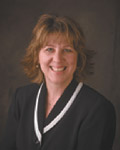July 5, 2012
Your Advocacy Connection
 By Julie Arndt
By Julie Arndt
GolderCare Solutions
Offering Comprehensive Care and Financial Advocacy
Advocacy is an act or process supporting a cause or proposal, according to Webster’s Dictionary. Some people think of political advocates when they think of advocacy. Others think in terms of a patient advocate. Advocacy is important to me because it is something that I do every day. I am a Care Advocate at GolderCare Solutions, a private advocacy group for seniors and those who are disabled. I believe my dear husband, an engineer accustomed to dealing with empirical data, describes it best by saying, “an advocate represents the needs of another and helps them get what they need.”
Healthcare today is fragmented and complex. There are so many choices it is overwhelming for the average person. Accessing care can be daunting, let alone communicating one’s needs and wishes once they have the attention of the provider. One needs an advocate. An advocate can be either a friend or family member, or in many instances a professional patient advocate is needed to secure the best possible care available to them.
It’s been a year since my father-in-law had knee surgery in a Des Moines hospital, a life altering event for him and our family, but a wonderful illustration of why one needs a patient advocate. He is a very active 80 year old, recently retired. The surgery itself went well, but post operatively he developed acute delirium. The nursing staff and hospitalist attending him only knew the very confused gentleman in room 222, not the active, recently retired gentleman we knew and loved. His symptoms were initially attributed to a reaction to the anesthesia. By the third day, he was getting much worse, his labs were off and there was now concern this routine surgery could be life threatening. By the time my husband and I arrived to relieve his mom and sister, he had been moved to critical care.
What happened next is key to why one needs an advocate, and in this case, we believe, saved his life.
We had my husband’s mom give permission for complete disclosure of medical information, including allowing us to see the medical record. At first the staff resisted, but once we assured them we were not seeking wrong doing, but just trying to clarify why he was so rapidly deteriorating, they were happy to cooperate.
His nurse joined us, and together we reconstructed the events leading to his current state. We concluded several things: there was not a good medical history, they had not stayed on top of his pain directly following the surgery and for some reason, his long standing cardiac condition was being totally overlooked. I asked to speak to the hospitalist. We asked questions of the hospitalist. but also shared a detailed medical history. We requested a cardiac consult, and fortunately, the hospitalist concurred, and he was seen within the hour. We gave the same history to the cardiologist, who completely changed his cardiac medications and treatment plan. We immediately started seeing an improvement.
At GolderCare, we provide multiple types of direct advocacy services, including patient advocacy which I addressed today. Personally, I most enjoy coaching family members how to best advocate for their loved ones…one issue at a time. We are always there to step in when needed to assist our clients, but whenever possible, it is best for the communication to be directly between the provider and the patient and/or his family.
In honor of World Patient Safety Day, we are pleased to be offering an educational forum for individuals interested in learning how to advocate for their loved one and related issues of safety in the healthcare system. The educational forum will take place on Wednesday, July 25 from 9 a.m. to 12 p.m. at the Moline Public Library and is open to the public. If you are interested in attending this event, please contact Beth at (309) 764-2273 (CARE) or email beth@goldercare.com.
Advocacy is truly helping another person get what they need. It can mean the difference between life and death.
Julie Arndt is a licensed social worker working in the field of geriatrics for over twenty five years with expertise in medical case management and community based services.
Filed Under: Family, Finance, Health & Wellness
Tags: According To Webster, Advocacy Group, Arndt, Average Person, Best Possible Care, Comprehensive Care, Critical Care, Delirium, Empirical Data, Family Member, Gentleman, Hospitalist, Knee Surgery, Patient Advocacy, Patient Advocate, Political Advocates, Professional Patient, Room 222, Routine Surgery, Third Day
Trackback URL: https://www.50pluslife.com/2012/07/05/your-advocacy-connection-5/trackback/


